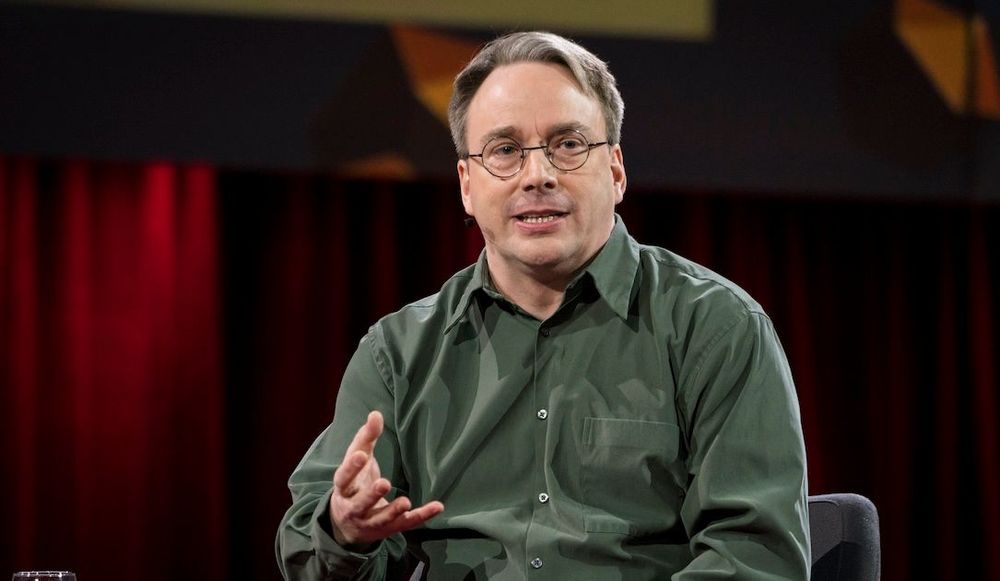Linux creator approves de-listing of several kernel maintainers associated with Russia
Linux creator Linus Torvalds issued a statement this week expressing support for the removal of around a dozen Russians from the list of Linux kernel maintainers.
The comments came after the news broke last week, causing debate and confusion within the coding community. It’s unclear who made the decision to remove 11 Russians, but it was announced by Greg Kroah-Hartman, a major Linux kernel developer.
“It’s entirely clear why the change was made; it’s not getting reverted,” Torvalds said. “If you haven’t heard of Russian sanctions yet, you should try reading the news sometime.”
The kernel is the core of a computer operating system. The Linux kernel is an open-source project consisting of millions of lines of code, and it is organized publicly into subsystems overseen by maintainers. Changes to the kernel are reviewed by other developers before being distributed to Linux users.
Developers linked to Russia were removed from their positions due to “various compliance requirements,” said Kroah-Hartman in a file containing a series of changes and updates to the kernel.
“They can come back in the future if sufficient documentation is provided,” Kroah-Hartman added, without specifying what this entails.
Russian media reported that the latest move mostly affected developers with email addresses indicating their place of work in Russia. Most of them, according to reports, are associated with sanctioned companies or organizations that are controlled or backed by the Russian government.
It is likely that there are more Russian coders maintaining the Linux kernel, but it is not yet clear if they would be affected by the changes.
Some of the Linux kernel maintainers and the coding community were surprised by the decision and called for a reversion or more clarification. They also said that the exclusion of certain people goes against Linux's main principles, which is to have source code freely available for anyone to view, modify and distribute.
“Among all the possibilities you had, you chose the most disgusting and shady way of doing this,” one of the coders wrote in replies on the kernel mailing list. “I deeply disrespect the removal and the way it was done.”
Another developer wrote: “An absolutely no-one-ever-reviewed patch, not even by the maintainers who got removed themselves. What about the next time? Who next would be removed?”
https://x.com/endermanch/status/1849205741351031064
Torvalds said that this criticism was the work of Russian “troll factories,” adding that he’s not going to change anything.
“As to sending me a revert patch — please use whatever mush you call brains. I'm Finnish. Did you think I'd be ‘supporting’ Russian aggression?” he added.
Torvalds didn’t provide further clarification, but it is likely that the decision and its timing are linked to new U.S. sanctions against Russia’s tech sector, which came into effect in September of this year.
One of the Linux maintainers, James Bottomley, confirmed on Thursday that the restrictions would apply to developers whose companies are owned or controlled by entities on the U.S. Office of Foreign Assets Control list of people designated as being involved in various activities that “threaten the national security, foreign policy, or economy” of the country.
The documentation Linux is looking for is to prove that someone on the removed list doesn't actually work for a sanctioned entity, Bottomley added.
This is not the first time Linux kernel development has been impacted since Russia invaded Ukraine two years ago. Last year, Linux refused to accept patches from a Russian maintainer who was an employee of the sanctioned company Baikal Electronics.
“We don't feel comfortable accepting patches from or relating to hardware produced by your organization. Please withhold networking contributions until further notice,” Linux said at that time.
Similar incidents have happened to other open-source developers associated with Russia. U.S. tech outlet The Register reported last year that it observed a Russian coder's account being blocked on GitHub and his repositories marked as "archived." The affected developer reportedly worked for a Russian tech equipment manufacturer sanctioned by Canada and the U.S.
The U.S. service Docker Hub, widely used for software development, suspended its operations in Russia earlier this year without prior notice to local users. Other tech companies, including giants like Microsoft and Apple, also exited the Russian market due to the war in Ukraine and sanctions.
Daryna Antoniuk
is a reporter for Recorded Future News based in Ukraine. She writes about cybersecurity startups, cyberattacks in Eastern Europe and the state of the cyberwar between Ukraine and Russia. She previously was a tech reporter for Forbes Ukraine. Her work has also been published at Sifted, The Kyiv Independent and The Kyiv Post.



